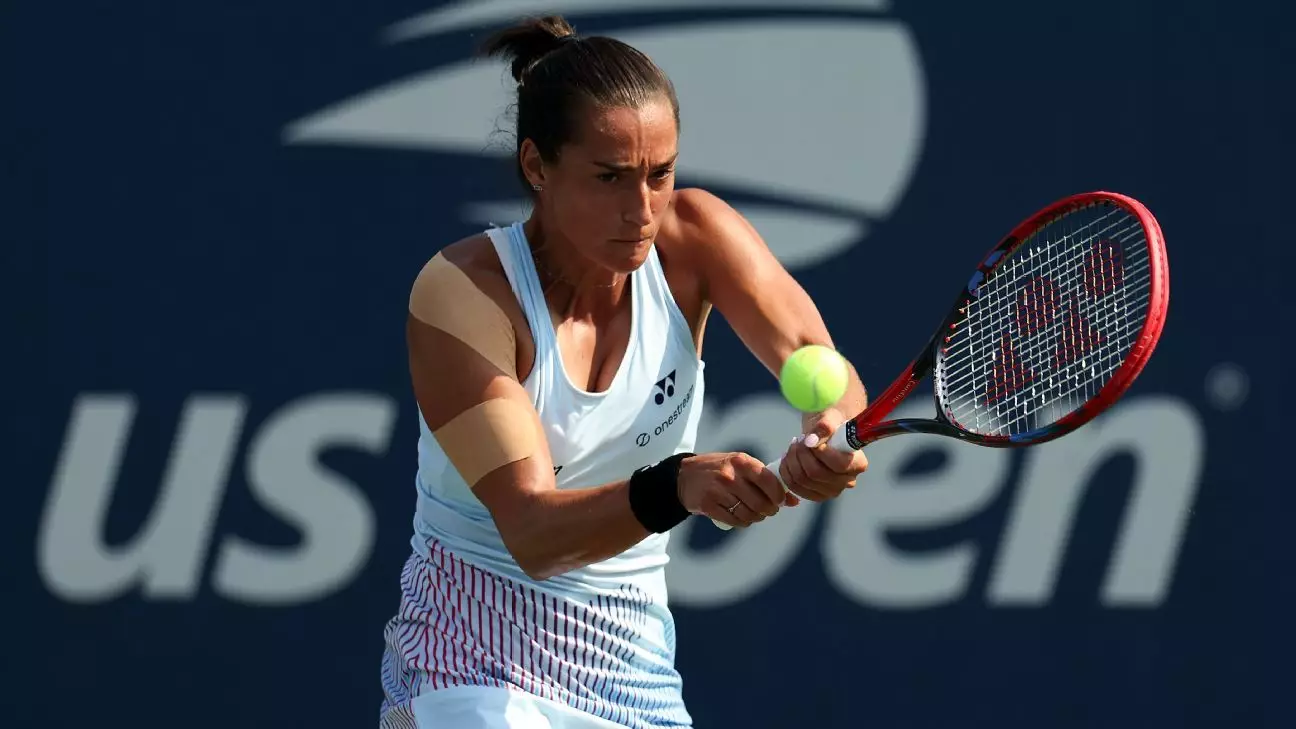In a disheartening turn of events, former world No. 4 Caroline Garcia has officially withdrawn from the highly anticipated Madrid Open due to a persistent back issue. The announcement, made through her social media platforms, sends ripples of concern throughout the tennis community, especially with the prestigious French Open looming on the horizon. Garcia’s narrative is not just about a physical ailment; it reflects a deeper emotional journey that has unfolded over the past few years. The 31-year-old’s candid acknowledgment of her health struggles raises important questions about the toll that high-level competition can take on athletes, both physically and mentally.
The Weight of Expectations
Garcia’s withdrawal comes on the heels of a series of underwhelming performances, most notably her unexpected early exits from both the Indian Wells and Miami tournaments. The pressure on her shoulders is amplified by the expectations that French fans have placed on her, fostering hopes of a homegrown champion at the French Open. Her previous achievements, including triumphing at the WTA Finals in 2022 and making it to the semifinals of the US Open within the same year, only intensify this pressure. The dichotomy of her success against the backdrop of recent struggles presents a vivid picture of the challenges faced by professional athletes, especially as they try to navigate both personal ambitions and public expectations.
Facing Mental Hurdles
It’s also essential to look beyond her physical health issues and acknowledge the alarming toll of mental health on athletes’ performances. Garcia had previously cut her 2024 season short, grappling with anxiety and panic attacks. This insight into her mental state adds another layer to the narrative surrounding her current setback. Athletes today are often forced to confront mental health challenges alongside physical injuries, and Garcia’s willingness to share her struggles is both courageous and vital in an increasingly open conversation about mental well-being in sports.
Embracing the Journey
Despite the setbacks, Garcia’s outlook remains surprisingly optimistic. She has expressed her intent to use this injury as a catalyst for growth. “I’ll use it to come back stronger,” she stated, highlighting her resilience. This attitude underscores a vital truth: athletes are not just competitors; they are human beings navigating the complexities of life. Her commitment to focusing on what she can control, while maintaining perspective, suggests a significant emotional transition. Such introspection may bear fruit, leading her back to competitive form when she returns to the court.
The Road Ahead
As Garcia prepares for recovery and the potential of missing additional tournaments, including the Italian Open, the looming question is how this break will influence her readiness for Roland Garros. The French Open is not merely another tournament for Garcia; it represents a chance to fulfill the dreams harbored by herself and her supporters. There is a blend of hope and uncertainty that surrounds her journey. If she can channel the adversity she faces now into resilience, the upcoming months might not just be about competition but a testament to the perseverance of the human spirit. Only time will tell if Garcia can transform her trials into triumph and seize the dream of achieving greatness on her home soil.

